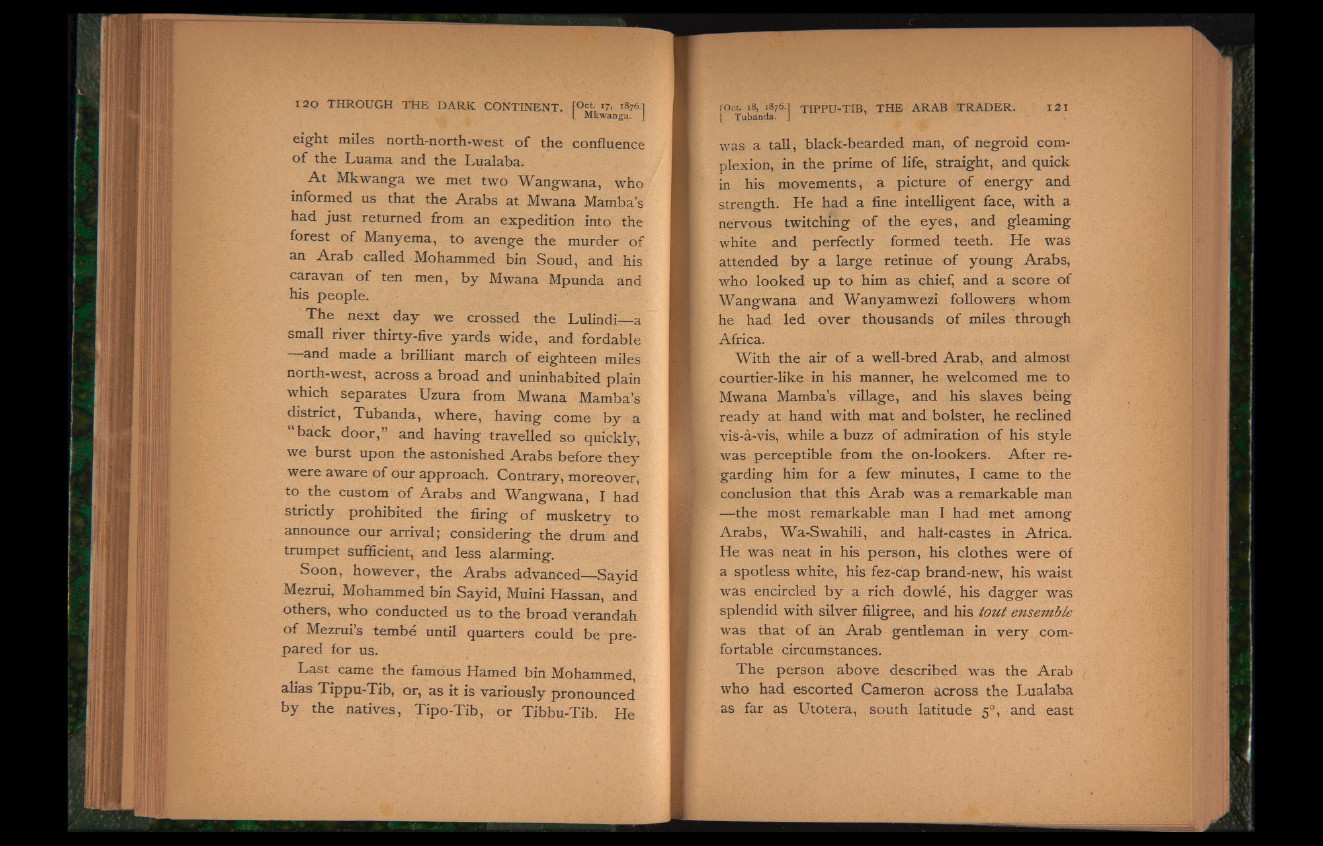
eight miles north-north-west of the confluence
of the Luama and the Lualaba.
A t Mkwanga we met two Wangwana, who
informed us that the Arabs at Mwana Mamba’s
had just returned from an expedition into the
forest of Manyema, to avenge the murder of
an Arab called Mohammed bin Soud, and his
caravan of ten men, by Mwana Mpunda and
his people.
The next day we crossed the Lulindi— a
small river thirty-five yards wide, and fordable
and made a brilliant march of eighteen miles
north-west, across a broad and uninhabited plain
which separates Uzura from Mwana Mamba’s
district, Tubanda, where, having come by a
“ back door,” and having travelled so quickly,
we burst upon the astonished Arabs before they
were aware of our approach. Contrary, moreover,
to the custom of Arabs and Wangwana, I had
strictly prohibited the firing of musketrv to
announce our arrival; considering the drum and
trumpet sufficient, and less alarming.
Soon, however, the Arabs advanced— Sayid
Mezrui, Mohammed bin Sayid, Muini Hassan, and
others, who conducted us to the broad verandah
of Mezrui’s tembe until quarters could be prepared
for us.
Last came the famous Hamed bin Mohammed,
alias Tippu-Tib, or, as it is variously pronounced
by the natives, Tipo-Tib, or Tibbu-Tib. He
roct 18, 1876.1 TIPPU-TIB, THE ARAB TRADER. 121 [ Tubanda. J
was a tall, black-bearded man, of negroid complexion,
in the prime of life, straight, and quick
in his movements, a picture of energy and
strength. He had a fine intelligent face, with a
nervous twitching of the eyes, and gleaming
white and perfectly formed teeth. He was
attended by a large retinue of young Arabs,
who looked up to him as chief, and a score of
Wangwana and Wanyamwezi followers whom
he had led over thousands of miles through
Africa.
With the air of a well-bred Arab, and almost
courtier-like in his manner, he welcomed me to
Mwana Mamba’s village, and his slaves bèing
ready at hand with mat and bolster, he reclined
vis-à-vis, while a buzz of admiration of his style
was perceptible from the on-lookers. After regarding
him for a few minutes, I came to the
conclusion that this Arab was a remarkable man
— the most remarkable man I had met among
Arabs, Wa-Swahili, and half-castes in Africa.
He was neat in his person, his clothes were of
a spotless white, his fez-cap brand-new, his waist
was encircled by a rich dowlé, his dagger was
splendid with silver filigree, and his lout ensemble
was that of an Arab gentleman in very comfortable
circumstances.
The person above described was the Arab
who had escorted Cameron across the Lualaba
as far as Utotera, south latitude 50, and east